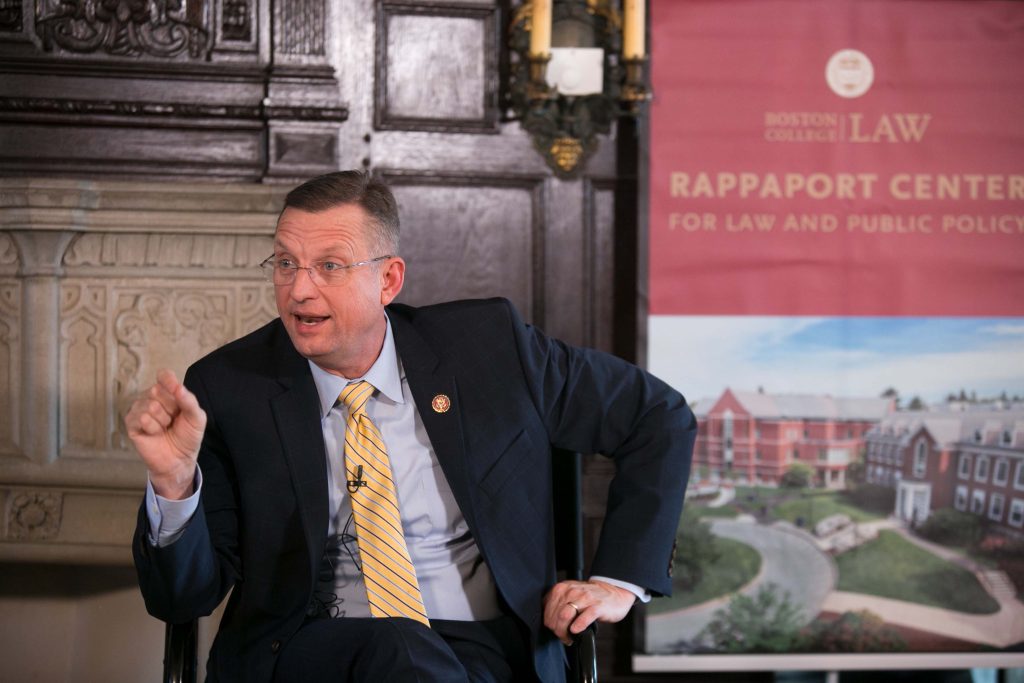Under the auspices of the Rappaport Center, US Representative Doug Collins (R-Ga.), ranking member of the House Judiciary Committee and candidate in a close special-election race for US Senate, participated in a wide-ranging discussion on bipartisanship, criminal justice reform, impeachment, and other politically hot topics at BC Law on February 3. Former Governor of Massachusetts Jane Swift (R), this semester’s Rappaport Distinguished Visiting Professor in Law and Public Policy, led the questioning during which Collins emphasized the importance of bipartisanship even in a time of deep political divisions.
“Bipartisanship is there, it’s just not seen” because we tend to go to polarizing issues, Collins said, pointing to the recently signed United States Mexico Canada Agreement (USMCA) as an example of what can be accomplished when both parties work together. He also frequently referred to his friendship with US Representative Hakeem Jeffries, a New York Democrat. Collins said they’d been able to argue vociferously their conservative-liberal points of view and still come to understandings on such issues as criminal justice reform and music copyright legislation. “Nothing gets done without bipartisanship,” he said.
Collins nonetheless was unequivocal about Trump’s impeachment, voting against it in the House and defending that decision at BC Law two days before the Senate acquitted the president. The John Marshall Law School graduate cited a flawed process by the House as among his reasons.
When Swift opened the floor to questions, Collins fielded a number of inquiries, including about the Equality Act, money in politics, and whether climate is an “existential crisis.” Asked about election security, he agreed that it’s a worry and then warned about the dangers of simple responses to complex questions.
“I don’t care what you believe, [just] don’t believe in bumper stickers,” he said. “Bumper stickers will get you in trouble and get you sticky. A simple three-, four-, or five-word answer is not going to get you where you want to be.” Regardless of one’s ideology, he continued, “there has to be honest dialogue, in which we can walk out of the room and say I despise everything that guy said, but I respect that we are in America, where we can say it. That’s the only thing that’s going to get us through. Liberals are Americans, conservatives are Americans. Figure it out.”


